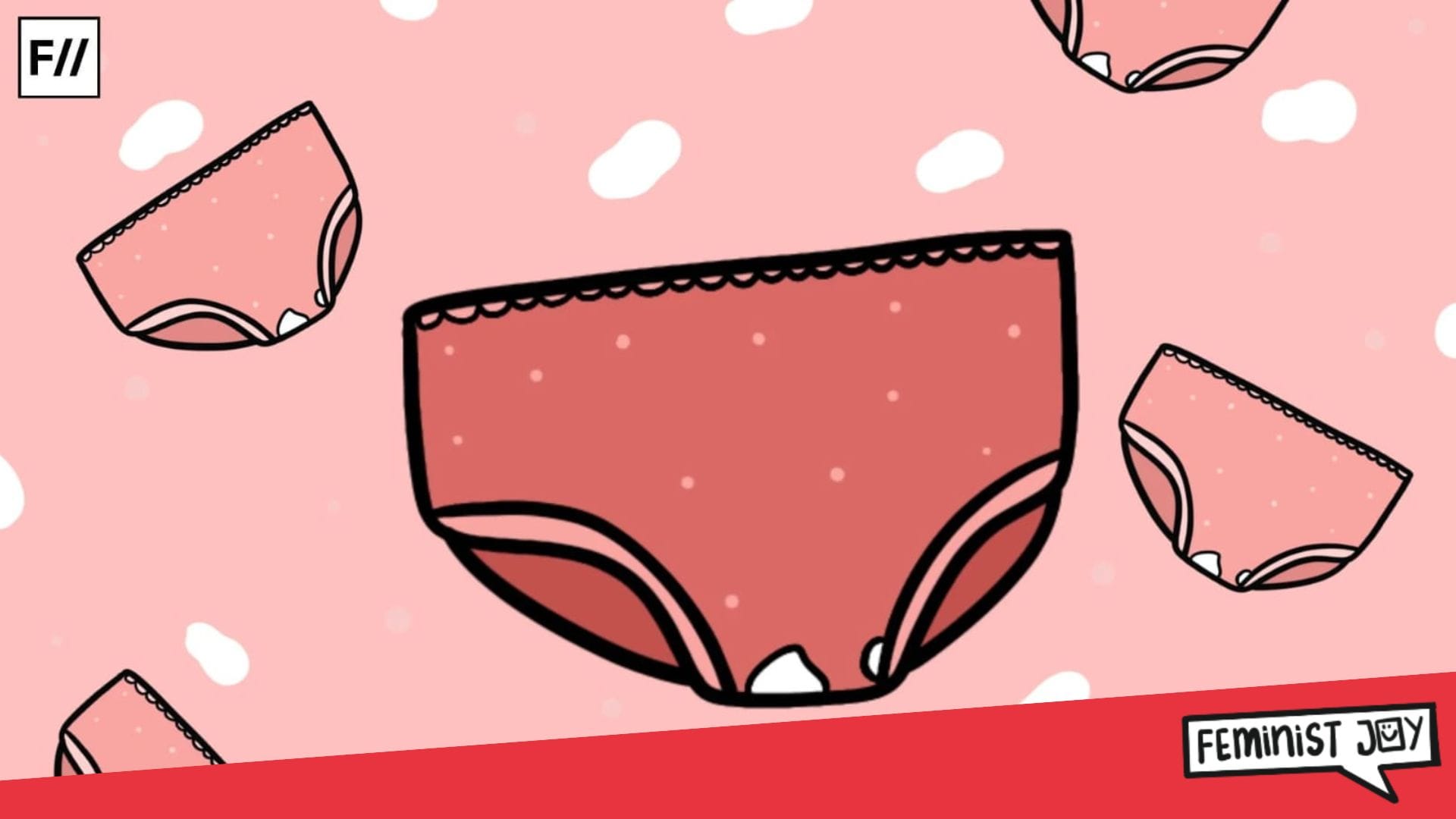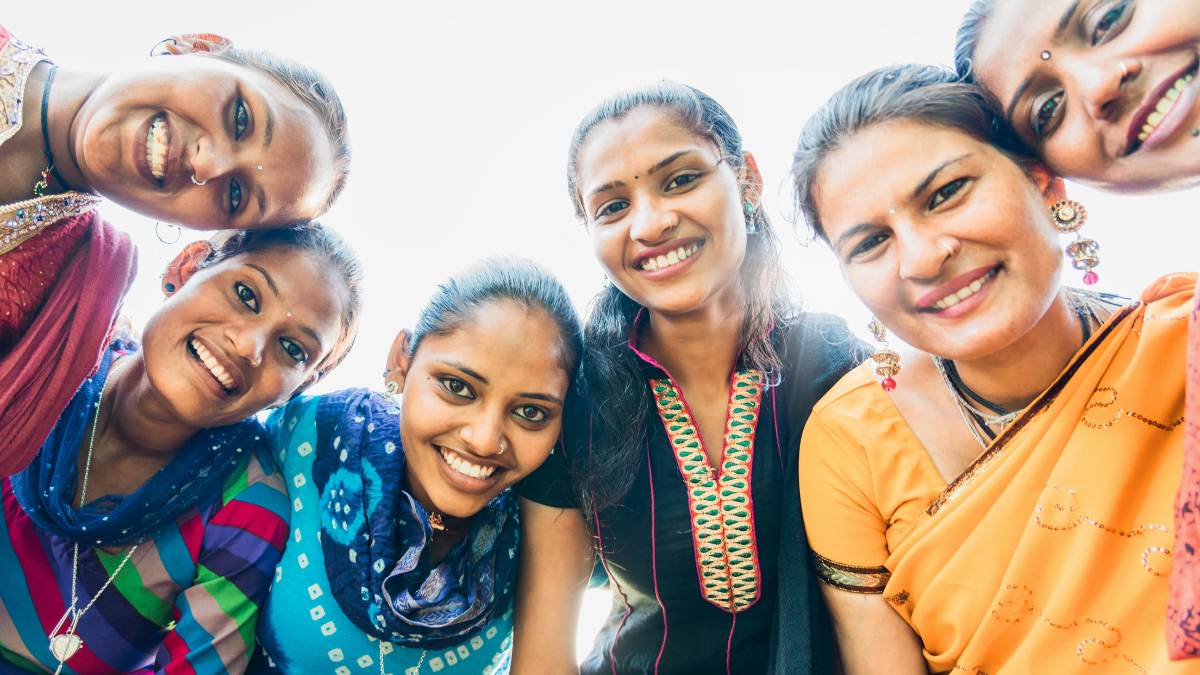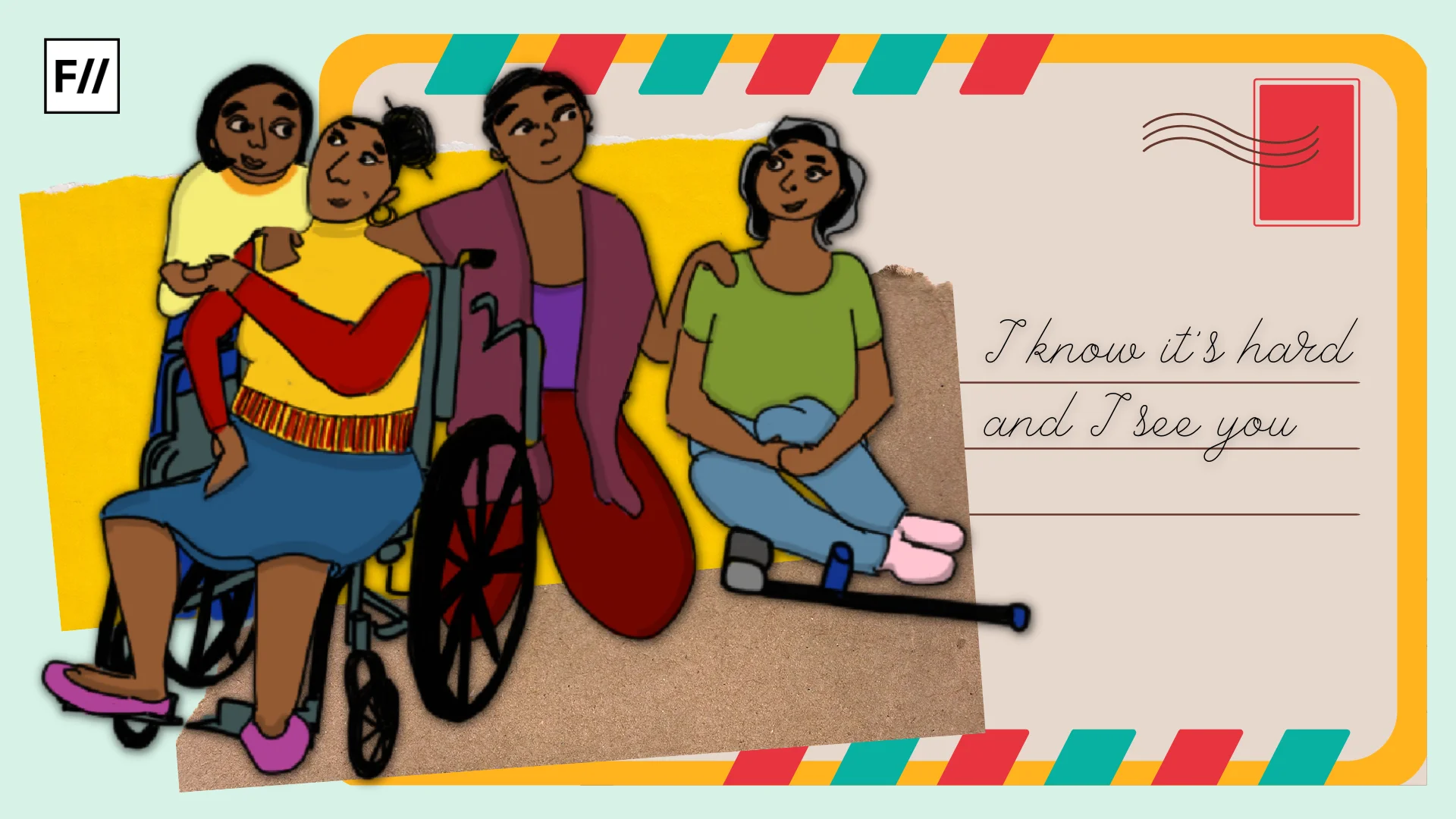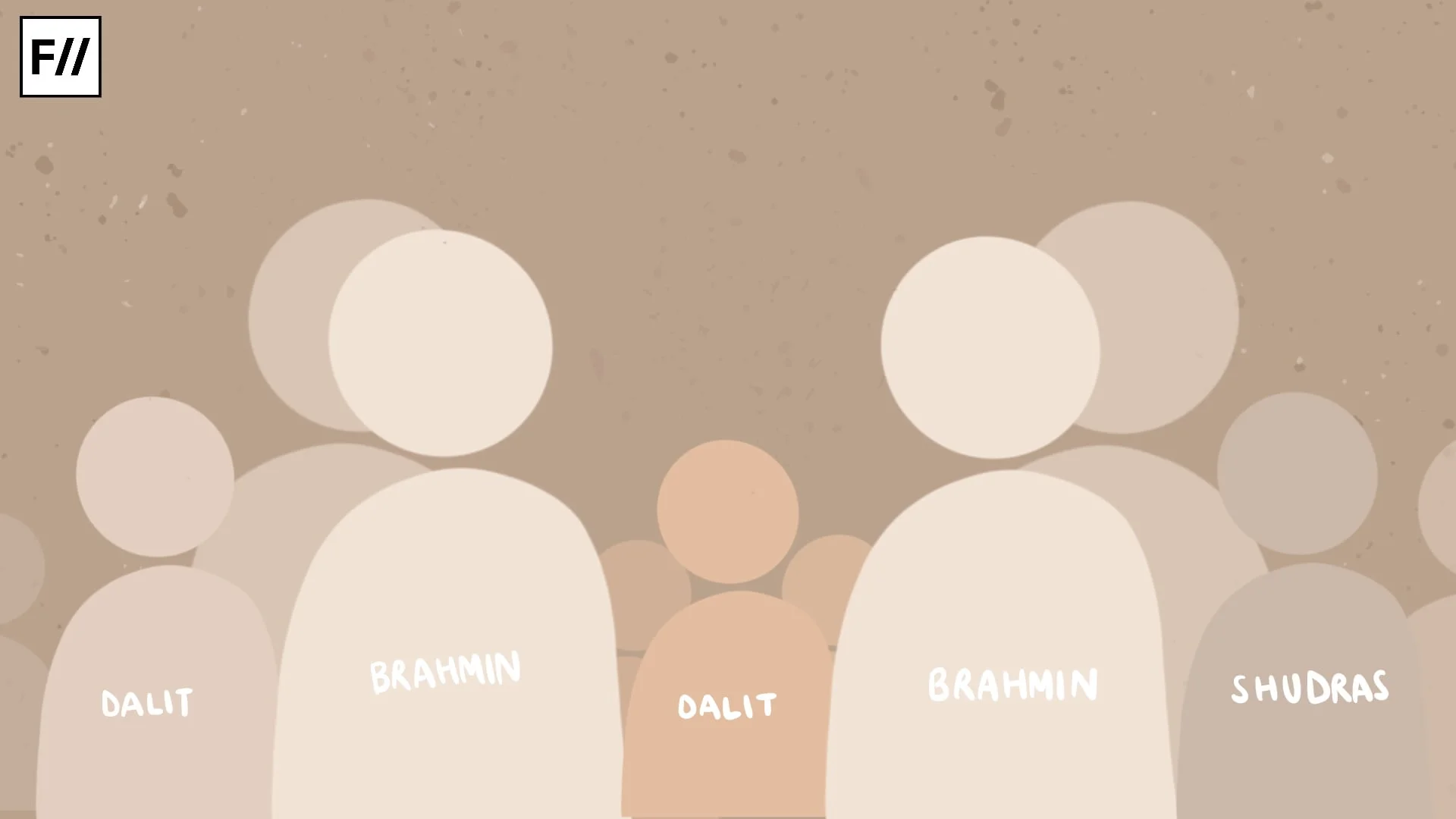I learned early that menstruation is as much about community as it is about biology. The first time I understood what girlhood solidarity truly meant was not when I got my first period, but the day I had bled through my clothes in a classroom. Like any girl aged 15 would do, I had panicked and just sat there in my chair frozen, I was unprepared and had not expected it to come so soon. It was then that my friend, who was menstruating herself, reached to her bag and handed me the only sanitary pad she brought for herself.
As a young girl navigating the awkwardness of growing up, it was my first time experiencing what the internet calls “Menstrual Bonding.” It happens in classrooms, washrooms, offices, shopping complexes, and many places more. ‘Does anyone have a pad or a tampon?‘ is perhaps one of the most universal questions of girlhood which cuts through race, class, religion or language.
There was also this time when a friend called me from the washroom, panicked by an early period. I didn’t have any menstrual product with me, nor did my immediate colleagues, so I went cabin to cabin, texting, knocking on doors, asking women I had never spoken to before. A stranger from another organisation on our floor eventually gave me one. She didn’t know my friend’s name nor mine, and I don’t remember hers, but I keep this incident close to my heart and recall it with fondness.
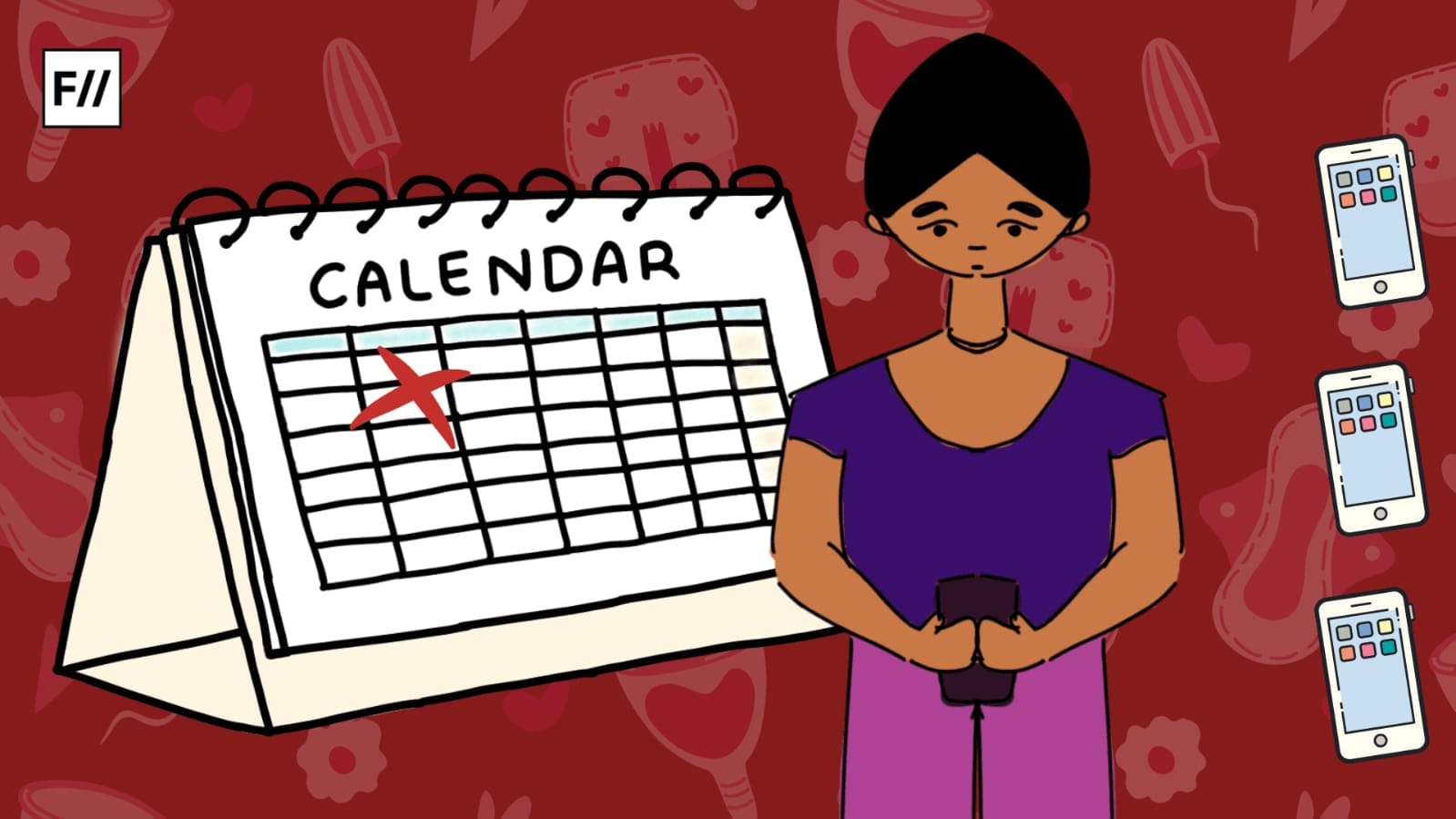
When I share this story with my friends, they say ‘Oh, that has happened with me too,‘ or ‘I did the same thing.’ Every woman I know has either done this for someone or someone had done it for her. What I find beautiful is not just the similarity of these stories, but also the fact that they exist everywhere. It also becomes deeply assuring that no matter where you are – in a school, office, college, university, a woman will step in to help you out.
What makes this solidarity all the more powerful is its persistence despite systemic neglect. Menstrual products like pads, tampons and cups are unaffordable for most women in our country. It was also taxed until 2018, and often considered non-essential in policymaking. A basic pack of a sanitary pad – the most used menstrual hygiene product by women, cost anywhere between ₹50 to ₹400 depending on factors like brand, sizes and flow and we have to keep purchasing it for twelve cycles each year until menopause. Such a cost for basic hygiene makes it clear why so many women resort to using unsafe but cheaper alternatives like cloth rags, newspapers or toilet papers.
It also makes me think why are we made to pay for products we cannot opt out of needing.
Menstrual solidarity goes beyond immediate presence and shared spaces, it also thrives online.
Menstrual solidarity goes beyond immediate presence and shared spaces, it also thrives online. On social media, there are thousands of videos and posts about menstrual tips and tricks, reviews of menstrual products, and recommendations for pain relief.
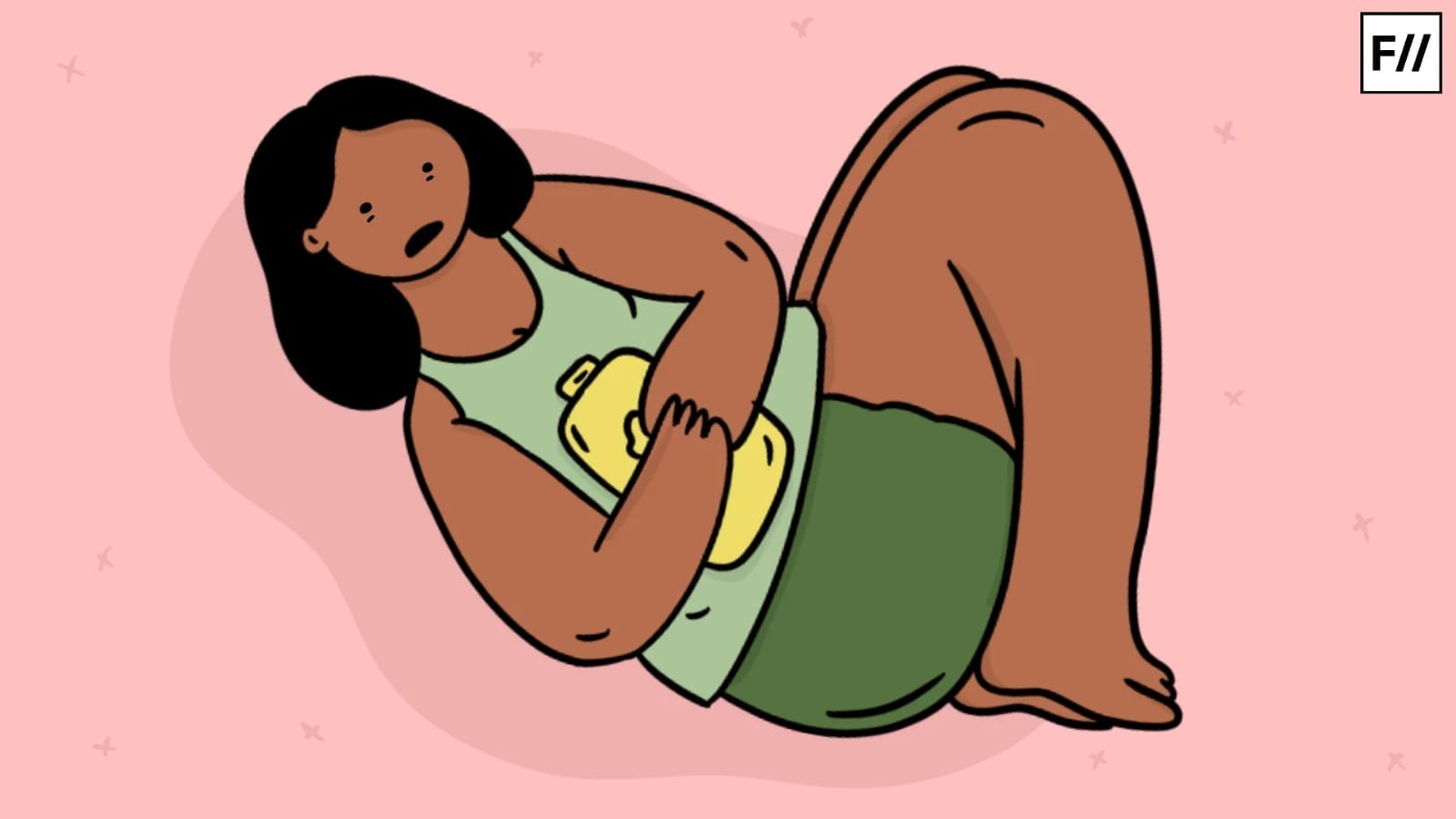
Women on the internet have given me the best period hacks and recommendations there could ever be. Like using ice and cold water for stain removal, period tracking app recommendations which do not breach privacy, which tea to drink for which Pre-Menstrual Syndrome (PMS) symptom, which pain killer has the least amount of side effects, and many more.
This online solidarity feels like an extension of the same network rely on in classrooms and washrooms, just with a wider reach where strangers feel like friends.
There is also a whole universe of period humour that we share amongst ourselves. My friends and I often joke about “syncing up” with each other, calling it “Bluetooth connection” when we menstruate at the same time. We share humorous posts, videos, tweets and reels about periods and PMS symptoms. There is joy and comfort in such jokes, where collective experience is spoken about openly.
Talking about periods openly, whether in classrooms, offices, or online, is also an act of defiance against patriarchy.
Talking about periods openly, whether in classrooms, offices, or online, is also an act of defiance against patriarchy. For centuries, menstruation has been treated as something shameful, a private matter to be hidden, and unfortunately it still persists in many households today. But this is what makes menstrual solidarity powerful. Each time we exchange a menstrual product in public, each time we share a hack online or make a period joke, we are reclaiming that space for ourselves.
Menstrual solidarity can be even more meaningful for trans and non-binary people, as they face an additional layer of stigma. Something as simple as having an open conversation can become a gesture of affirmation. In online spaces, there are growing communities where trans people exchange tips about period products, cup usage, and ways to manage dysphoria during cycles. Including their voices broadens the conversation and is an essential step towards making menstrual justice truly inclusive.
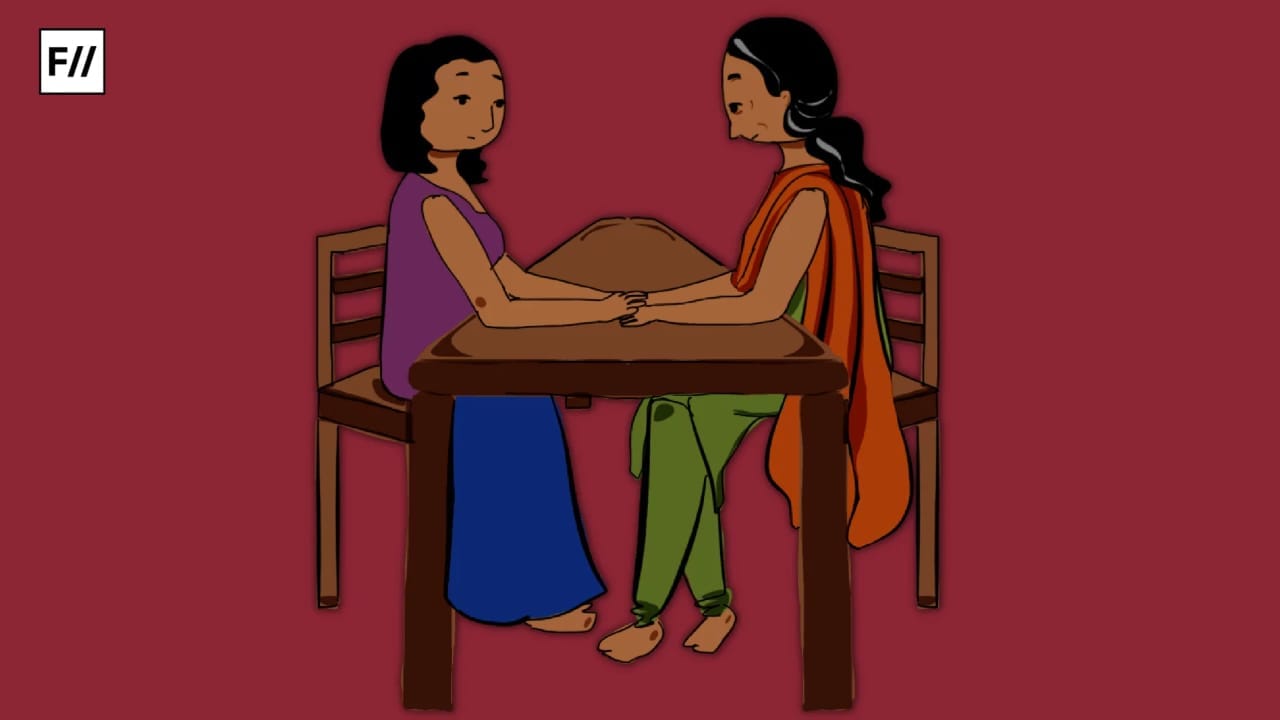
Such is the feminist joy of Menstrual Bonding. These conversations, exchanges and acts of care normalise talking openly about menstruation, turning what was once a topic of shame and disgust to a topic of everyday conversations, humour and even art.
About the author(s)
Mema is currently a Master's student at South Asian University (SAU). Hailing from Manipur, her lived experiences there have shaped a deep commitment to the feminist cause. She cares deeply about women and their future, which she tries to convey with her writing. She finds joy in reading, writing and cooking.
